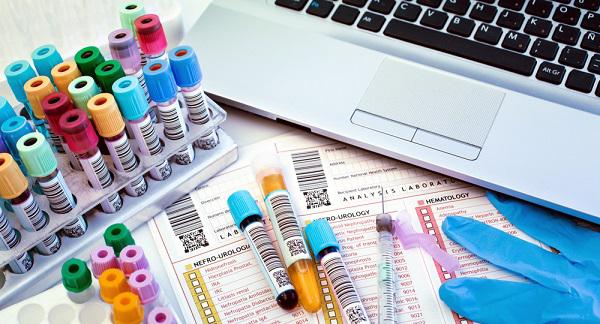
What is a parathyroid hormone (PTH) test?
This test measures the level of parathyroid hormone (PTH) in the blood. PTH, also known as parathormone, is made by your parathyroid glands. These are four pea-sized glands in your neck. PTH controls the level of calcium in the blood. Calcium is a mineral that keeps your bones and teeth healthy and strong. It's also essential for the proper functioning of your nerves, muscles, and heart.
If calcium blood levels are too low, your parathyroid glands will release PTH into the blood. This causes calcium levels to rise. If calcium blood levels are too high, these glands will stop making PTH.
PTH levels that are too high or too low can cause serious health problems.
Other names: parathormone, intact PTH
What is it used for?
A PTH test is most often used along with calcium testing to:
- Diagnose hyperparathyroidism, a condition in which your parathyroid glands produce too much parathyroid hormone
- Diagnose hypoparathyroidism, a condition in which your parathyroid glands produce too little parathyroid hormone
- Find out whether abnormal calcium levels are being caused by a problem with your parathyroid glands
- Monitor kidney disease
Why do I need a PTH test?
You may need a PTH test if your results were not normal on a previous calcium test. You may also need this test if you have symptoms of having too much or too little calcium in your blood.
Symptoms of too much calcium include:
Symptoms of too little calcium include:
What happens during a PTH test?
A health care professional will take a blood sample from a vein in your arm, using a small needle. After the needle is inserted, a small amount of blood will be collected into a test tube or vial. You may feel a little sting when the needle goes in or out. This usually takes less than five minutes.
Will I need to do anything to prepare for the test?
You probably won't need any special preparations for a PTH test, but check with your health care provider. Some providers may ask you to fast (not eat or drink) before your test, or may want you to take the test at a certain time of day.
Are there any risks to the test?
There is very little risk to having a blood test. You may have slight pain or bruising at the spot where the needle was put in, but most symptoms go away quickly.
What do the results mean?
If your test shows you have a higher than normal level of PTH, it may mean you have:
- Hyperparathyroidism
- A benign (noncancerous) tumor of the parathyroid gland
- Kidney disease
- A vitamin D deficiency
- A disorder that makes you unable to absorb calcium from food
If your test shows you have a lower than normal level of PTH, it may mean you have:
- Hypoparathyroidism
- An overdose of vitamin D or calcium
If you have questions about your results, talk to your health care provider.
Is there anything else I need to know about a PTH test?
PTH also plays an important role in controlling the levels of phosphorus and vitamin D in the blood. If your PTH test results were not normal, your provider may order phosphorus and/or vitamin D tests to help make a diagnosis.
This health news has been brought to you by the publishers of Health Reviews, Tips and News Website. Visit today for great health tips and reviews.



No comments
Post a Comment